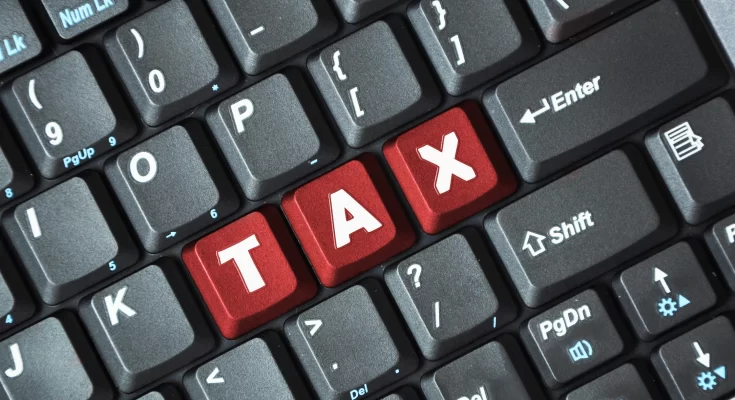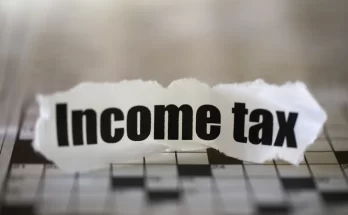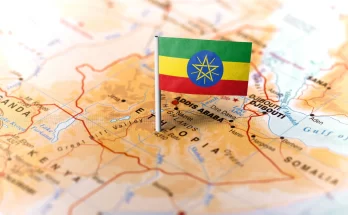Rwanda Rolls Out New Taxes to Boost Revenue and Spur Development. Rwanda has officially implemented a comprehensive tax reform package, introducing several new levies aimed at expanding the country’s revenue base and supporting critical national priorities.
According to reports published in the Official Gazette on May 29, 2025, the reforms: signed into law by President Paul Kagame, seek to fund key areas such as infrastructure development, environmental sustainability, and economic growth.
Tax officials stated that the new measures, which came into effect immediately upon publication unless otherwise specified, represent one of the most significant updates to Rwanda’s tax system in recent years.
Rwanda Rolls Out New Taxes: Environmental Levy on Plastics
A standout feature of the reform is the introduction of an environmental levy on imported plastic-packaged goods. Under Law No. 010/2025, importers will pay a levy of 0.2% of the customs value on products like bottled water, cosmetics, shampoos, clothing, shoes, and mattresses.
Officials from the Rwanda Revenue Authority confirmed that this levy, which takes effect on July 1, 2025, aims to reduce plastic waste and encourage the adoption of eco-friendly packaging.
Tourism Tax on Accommodation Services
The tourism sector will also feel the impact of the new tax regime. Law No. 015/2025 introduces a 3% tourism tax on accommodation services. The tax will be calculated on the amount paid for lodging, excluding VAT, and collected by hotels and guesthouses, with monthly remittance to the tax administration.
Government representatives noted that this tax is intended to strengthen Rwanda’s capacity to promote its tourism industry, which remains a key driver of the country’s economic diversification.
Levy on Petroleum Products
Petroleum products will now attract a 15% levy on their customs value, as stipulated by Law No. 012/2025. Tax authorities explained that revenues from this levy will be channeled into building strategic fuel reserves to enhance national energy security.
Africa Loses $125 Billion in Tax Revenue Due to Informal Economy — AfDB Warns
Annual Road User Fees Introduced
Road users are also subject to new charges under Law No. 013/2025. Vehicle owners must now pay an annual levy ranging from 50,000 RWF for sedans to 150,000 RWF for heavy trailers. Officials clarified that this revenue will support road maintenance and rehabilitation projects across the country.
Excise Duties on Luxury and Harmful Goods
A significant overhaul of excise duties has also been introduced through Law No. 011/2025. The law increases taxes on select goods and services, particularly those considered harmful or luxurious.
For instance, cigarettes now attract an excise duty of 36% of the retail price plus an additional 230 RWF per pack. Cigars will be taxed at 160%, while electronic cigarettes face a flat tax of 30,000 RWF per unit. Their liquid cartridges are taxed at 24,400 RWF each.
Motor vehicle lubricants now carry a 37% excise duty. Fuel prices will see an additional burden, with premium petrol taxed at 183 RWF per litre and gas oil at 150 RWF per litre.
Vehicles will also be taxed based on engine size and age. Cars under 1500cc or newer hybrid vehicles will face a 5% excise duty. Vehicles between 1500cc and 2500cc, or older hybrids aged three to eight years, will pay 10%. Those over 2500cc or hybrids older than eight years will be taxed at 15%.
New VAT Exemptions on Essential Goods and Services
In a move to support essential services and productivity, Law No. 009/2025 expands the list of goods and services exempt from VAT. These include medical services, pharmaceutical products, sanitary pads, educational materials (including online learning tools), books, newspapers, and raw agricultural products.
Electric vehicles and their charging infrastructure, as well as machinery and raw materials for industries, will also enjoy VAT exemptions until June 30, 2028, and June 30, 2026, respectively.
Balancing Revenue with Social Priorities
According to government sources, these tax reforms are designed to balance revenue generation with social and economic priorities.
Officials emphasized that by taxing consumption of luxury and environmentally harmful products while easing the burden on essential goods, the reforms aim to promote responsible consumption, support industrial growth, and protect public health.
Businesses and Consumers Urged to Prepare
Businesses have been urged to update their pricing strategies and compliance systems to align with the new tax measures. Consumers are advised to expect moderate price adjustments on affected goods and services.
Long-Term Revenue Targets Set
The reforms are part of a broader tax overhaul that includes 14 new taxes planned for the next five years. Rwanda’s Ministry of Finance projects that these measures could generate over Rwf 350 billion (approximately $310 million) to support the country’s development agenda.
As Rwanda navigates its growth trajectory, tax experts believe that these measures could strengthen the country’s fiscal resilience and advance its long-term economic goals.




